Over 200 English Irregular Verbs - Part 1
LEVELS
A1, A2, B1, B2, C1, C2
DICTIONOPOLIS
Copyright Dictionopolis, 2020
All rights reserved.
The content contained within this book may not be reproduced, duplicated or transmitted without direct written permission from the author or the publisher.
Under no circumstances will any blame or legal responsibility be held against the publisher, or author, for any damages, reparation, or monetary loss due to the information contained within this book. Either directly or indirectly.
While all attempts have been made to verify the information provided in this publication, neither the author nor the publisher assumes any responsibility for errors, omissions or contrary interpretations of the subject matter herein.
Legal Notice:
This book is copyright protected. This book is only for personal use. You cannot amend, distribute, sell, use, quote or paraphrase any part, or the content within this book, without the consent of the author or publisher.
Disclaimer Notice:
Please note the information contained within this book is for educational and entertainment purposes only. All effort has been executed to present accurate, up to date, and reliable, complete information.
The views expressed are those of the author alone, and should not be taken as expert instruction or commands.
No warranties of any kind are declared or implied. Readers acknowledge that the author is not engaging in the rendering of legal, financial, medical or professional advice. The content within this book has been derived from various sources. Please consult a licensed professional before attempting any techniques outlined in this book.
By reading this book, the reader agrees that under no circumstances is the author responsible for any losses, direct or indirect, which are incurred as a result of the use of the information contained within this book, including, but not limited to, errors, omissions, or inaccuracies.
YOUR FREE GIFT
As a way of saying thank you for your purchase, free flashcards for self-printing are available to readers of this book.
Click (or tap) below to get free instant access.
>> CLICK HERE to access <<
CONTENTS
INTRODUCTION
Irregular verbs in the English language are common, and many of the first verbs you will learn are irregular. Learning these verbs early will help you to master the language quicker. This guide to the most common irregular verbs in English has each verb grouped by the Common European Framework of Reference for Languages (CEFR) level, making it a valuable resource for learning the language. We hope you find this book a valuable resource in your language journey and in building up your confidence in using English to communicate.
This guide uses the following format and conventions:
* The verb is displayed using the base form (infinitive - I), simple past (II), and the past participle (III).
* Each verb has a definition to make it easier to understand the context for the usage of the verb.
The following symbols are used in this guide.

The loudspeaker symbol means that you can hear the pronunciation of the word in all forms in the audiobook version (at the indicated time).

The star symbol signifies that the word in question occurs mainly in American English. When using the audiobook, you will hear the pronunciation of these words with this in both British and American.

The card symbol with a number means the number of the flashcard. Remember to download the flashcards and use them systematically to speed up the memorizing process.
We believe that everyone can find something for themselves in our guide to irregular English verbs. For beginners, mastering irregular verbs will enhance your ability to learn English, and for advanced users, the guide is an essential aid in consolidating knowledge of irregular verbs.
We have put many hours of work into the preparation of this guide to irregular English verbs, and we hope you find this a valuable resource in supporting your language journey. We are always looking to improve our products to offer the best learning experience and would be grateful to hear your opinion and welcome your feedback. You can do this by clicking here. We love to listen to our readers and read every review in person, so we look forward to hearing from you.
Thank you,
Dictionopolis Team
Special thanks to the following language consultants:
Alexandra Freeman
Joe Frost
With additional support from Jamie James.
LEVEL A1
be
I be
bi
II was / were
wz, wz / w(r), w(r)
III been
bn, bin
To be has various meanings. It means to have existence or life and is also used to introduce a characteristic or condition of something. To be is also an auxiliary verb.

1 00:15

4
become
I become
bkm
II became
bkem
III become
bkm
To become means to begin to exist, or to change from one state of being or role to another.

1 01:06

7
begin
I begin
bn
II began / begun

bn / bn

III begun
bn
To begin means to initiate something.

1 01:50

9
break
I break
brek
II broke
brk
III broken
brkn
To break means using some force (intentionally or accidentally) to split something into multiple pieces.

1 02:30

19
bring
I bring
br
II brought
brt
III brought
brt
To bring means to cause something or someone to move with you from one place to another.

1 03:13

22
build
I build
bld
II built
blt
III built
blt
To build means to form or create something (usually out of other materials).

1 03:54

24
buy
I buy
ba
II bought



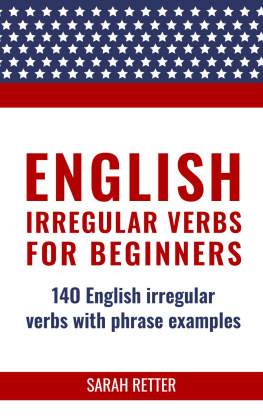
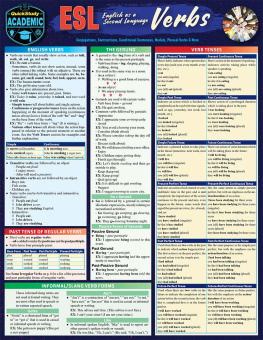
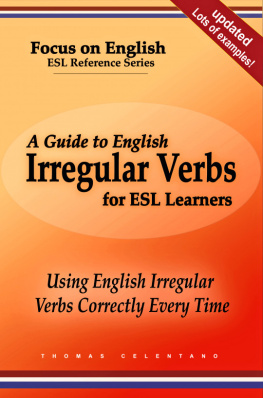
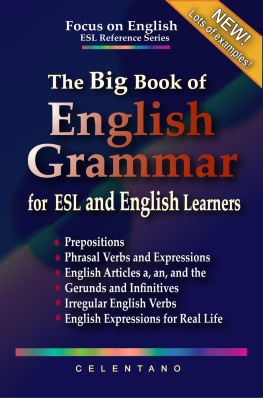
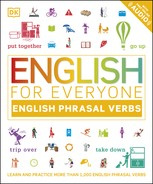
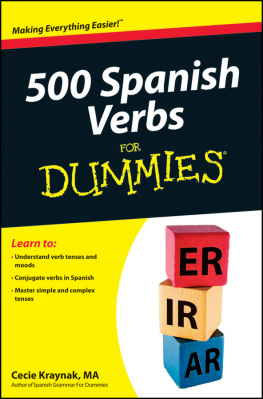
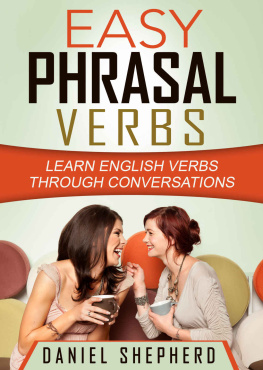
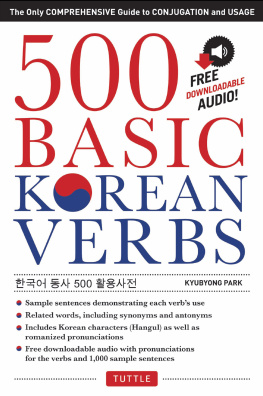

 The loudspeaker symbol means that you can hear the pronunciation of the word in all forms in the audiobook version (at the indicated time).
The loudspeaker symbol means that you can hear the pronunciation of the word in all forms in the audiobook version (at the indicated time). The star symbol signifies that the word in question occurs mainly in American English. When using the audiobook, you will hear the pronunciation of these words with this in both British and American.
The star symbol signifies that the word in question occurs mainly in American English. When using the audiobook, you will hear the pronunciation of these words with this in both British and American. The card symbol with a number means the number of the flashcard. Remember to download the flashcards and use them systematically to speed up the memorizing process.
The card symbol with a number means the number of the flashcard. Remember to download the flashcards and use them systematically to speed up the memorizing process. 1 00:15
1 00:15  4
4 1 01:06
1 01:06 
 9
9 1 02:30
1 02:30  19
19